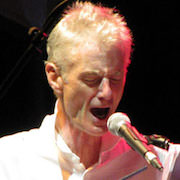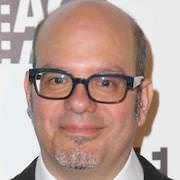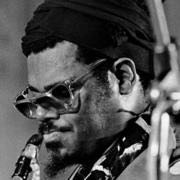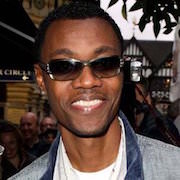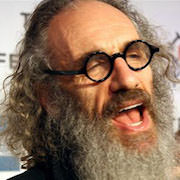Van der Graaf Generator are an English progressive rock band, formed in 1967 in Manchester by singer-songwriters Peter Hammill and Chris Judge Smith and the first act signed by Charisma Records. They did not experience much commercial success in the UK, but became popular in Italy during the 1970s. In 2005 the band reformed, and are still musically active with a line-up of Hammill, organist Hugh Banton and drummer Guy Evans.
The band formed at the University of Manchester, but settled in London where they signed with Charisma. They went through several incarnations in their early years, including a brief split in 1969. When they reformed, they found minor commercial success with The Least We Can Do Is Wave to Each Other (released in early 1970 and their only album to chart in the UK), and after the follow-up album, H to He, Who Am the Only One (December 1970), stabilised around a line-up of Hammill, Banton, Evans and saxophonist David Jackson. The quartet subsequently achieved significant success in Italy with the release of Pawn Hearts in 1971. After several exhausting tours of Italy, the band split in 1972. They reformed in 1975, releasing Godbluff and frequently touring Italy again, before a major line-up change and a slight rename to Van der Graaf. The band split in 1978. After many years apart, the band finally reunited at a gig at the Royal Festival Hall and a short tour in 2005. Since then, the band has continued as a trio of Hammill, Banton, and Evans, who record and tour regularly in between Hammill's concurrent solo career.
The group's albums have tended to be both lyrically and musically darker in atmosphere than many of their progressive rock peers (a trait they shared with King Crimson, whose guitarist Robert Fripp guested on two of their albums), and guitar solos were the exception rather than the rule, preferring to use Banton's classically influenced organ, and, until his departure, Jackson's multiple saxophones. While Hammill is the primary songwriter for the band, and members have contributed to his solo albums, the band arranges all its material collectively. Hammill's lyrics covered themes of mortality, due to his love of science fiction writers such as Robert A. Heinlein and Philip K. Dick, along with his confessed warped and obsessive nature. His voice has been a distinctive component of the band throughout its career, described as "a male Nico". Though the group have generally been commercially unsuccessful, they have inspired several musicians across various genres.
